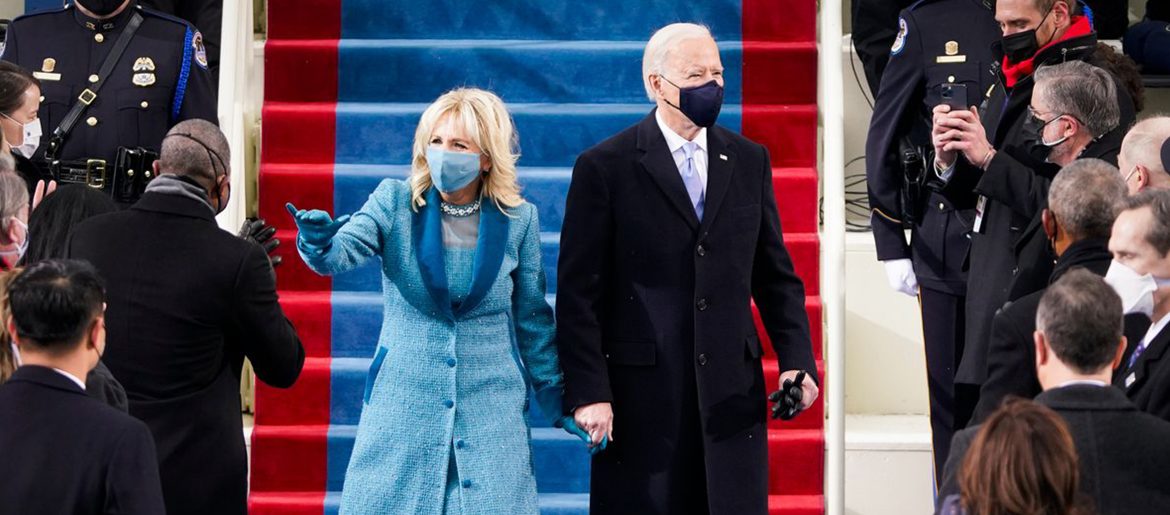It’s official: Joe Biden is the President of the United States. Now that he and wife Dr. Jill Biden have moved into the White House, he’ll hit the ground running to tackle America’s biggest challenges. We know he wants to make big changes right away. But will Biden’s first 100 days impact Australia in a meaningful way?
You can read a full list of Biden’s 100 day plan elsewhere on the web – CBS News has a great summary.
But for young Aussies, these are the four key areas to watch, as they will have a more direct effect on us.
1. COVID-19 Action & Vaccine Rollout
Tackling the pandemic will understandably be Biden’s top priority. His primary goals here are:
- Mandating for masks to be worn on all interstate travel and in federal buildings or property. He issued this executive order on his very first day in office.
- Delivering 100 million vaccinations in his first 100 days
Having a Government that actually takes COVID-19 seriously is not only important for the U.S. (obviously) but the rest of the world too. International travel will not return to any kind of relative ‘normal’ until the world’s major regions get the virus under control.
On an individual level, this affects Aussies who want to travel – duh – or have friends and families in other countries. It also impacts the strength of the Australian economy. In 2019 international tourism contributed almost AUD$16bn to the national GDP… and that’s before you factor in the cost of supporting businesses and jobs that rely heavily on international tourism.
The third executive order Biden signed today was to rejoin the Paris Agreement pic.twitter.com/TozKBIU7Bk
— Brian Kahn (@blkahn) January 20, 2021
2. Climate Change Action
Biden was going to need a Democratic Senate majority to enact any of his ambitious climate plans. Well… he’s got it. He’s planning to:
- Rejoin the Paris Climate Agreement on day one, re-committing to achieving net-zero carbon emissions
- Revoke the permit for the Keystone XL pipeline, effectively killing the controversial oil project worth US$8bn
As Dr Emma Shortis explained to Zee Feed in October, Biden’s aggressive climate leadership could leave Australia behind. If he is able to shift the global economy away from fossil fuels and towards renewable energy and technology, the Australian government will need to make fast changes to keep up.
But for the 84% of Australians who want action on climate change, Biden’s Presidency will be (hopefully) an powerful example of what’s possible.
3. Returning the US to the international system
The Biden Administration is expected to be a return to ‘normal’ in many ways, including the U.S. rejoining the important international structures it abandoned under Trump. Specifically, the US will rejoin the World Health Organisation (WHO). He is also expected to restore the country’s involvement and relationship in other global bodies like the United Nations and World Trade Organisation (WTO).
It’s a complete reversal of Trump’s nationalistic approach. We all face issues that ignore national borders (see: climate change, the pandemic, regulation of the Internet, human rights, economic trade). These problems are already affecting the lives of Australians – coordination via global systems is the only chance we have at finding solutions.
Related Posts
4. Approach to China
How the U.S–China relationship plays out in Biden’s first 100 days will impact Australia. We’re stuck between two global powers. On one hand, our economy is heavily dependent on trade with China; on the other, the U.S. is our most powerful ally.
It is not yet clear what Biden’s first actions relating to China will be. His election campaign suggested he was aligned with Trump’s approach, so he may keep the former President’s tariffs on Chinese imports.
This will be a key area for Australians to watch as it unfolds.
Main image: AFP/Getty Images





